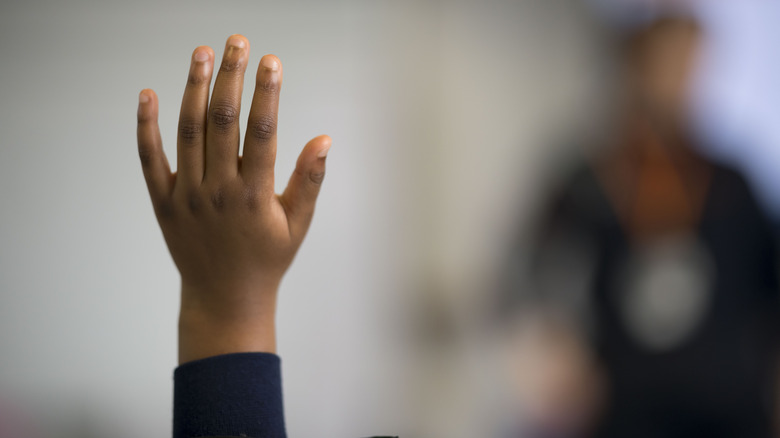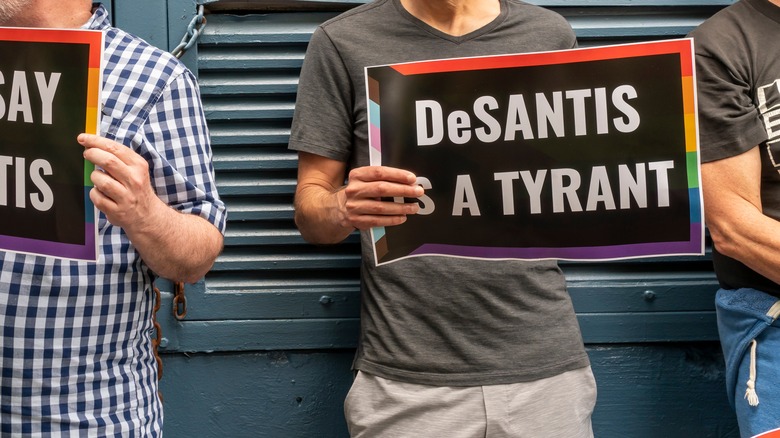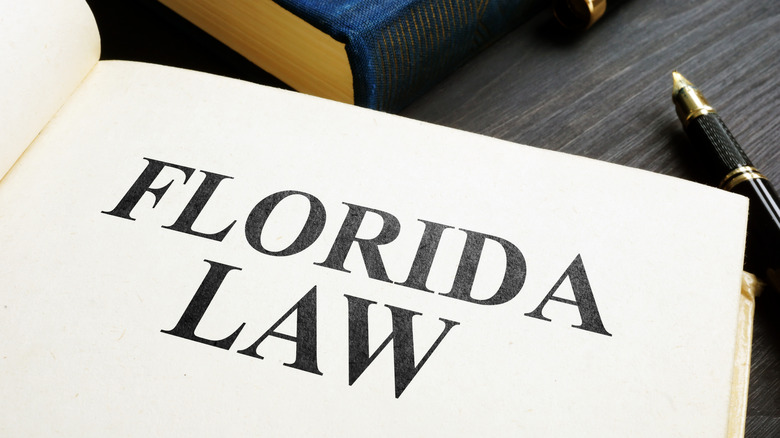Florida's Potential Ban On Period Talk In Elementary Schools Confirms GOP Is Clueless About Reproductive Health
When Florida proposed HB 1069 to ban both learning and conversations of sexual health throughout elementary school — notably about periods — both confusion and outrage was swift. "So, criminalizing women and girls' conversations about normal bodily functions?" one Twitter user asked. "Great way to shame young girls into a lifetime of hating their own bodies," USA Today opinion columnist Michael J. Stern retorted on Twitter. According to MedlinePlus, girls generally begin their periods between ages 11 and 14. Periods can, however, begin even sooner, around the age of 9, per the Cleveland Clinic.
During a subcommittee hearing, Democratic state representative Ashley Gantt asked the sponsor of the bill, Republican state representative Stan McClain, to clarify this understanding. "So if little girls experience their menstrual cycle in fifth grade or fourth grade, will that prohibit conversations from them since they are in the grade lower than sixth grade?" Gannt asked. McClain responded, "It would."
While McClain suggests the bill is meant to set standards regarding sexual education across the state's school districts, the bill itself reveals its intent to enforce binaries. "Teach that sex is determined by biology and reproductive function at birth; that biological males impregnate biological females by fertilizing the female egg with male sperm; that the female then gestates the offspring; and that these reproductive roles are binary, stable, and unchangeable," the bill reads. Abstinence would also be emphasized as the "expected standard" for students, while also "teaching the benefits of monogamous heterosexual marriage."
LGBTQ+ youth are targeted
Florida bill HB 1069 is further legislation introduced to control the narratives around sex, gender, and health amongst children through the school institution. It is being called the "Don't Say Period" bill by those who oppose it, after the nickname given to Florida's infamous HB 1557, called the "Don't Say Gay" bill, introduced by governor Ron DeSantis. That bill made law that "Classroom instruction by school personnel or third parties on sexual orientation or gender identity may not occur in kindergarten through grade 3 or in a manner that is not age-appropriate or developmentally appropriate for students in accordance with state standards." And at the same time, Republicans have made hateful, prejudicial rhetoric surrounding the LGBTQ+ community a part of their platform's ideology. Critics ask: What does the "Don't Say Gay" bill mean for LGBTQ+ kids, who are already at a higher risk of depression, bullying, and even suicide? How can LGBTQ+ kids — and kids with LGBTQ+ family members — feel safe and free at school to both express themselves, and pursue learning, should they feel afraid of being punished for it?
Another Florida bill, HB1421, is called "one of the cruelest in the country targeting transgender people" by The New Republic, which would make gender-affirming care illegal for minors, and even force them to de-transition or stop receiving certain medical treatments such as hormone therapy, among many other provisions that would affect care for trans people.
Continued issues with sex education
While the Republican party continues its barrage of anti-LGBTQ+ legislation across the nation, its efforts to stigmatize sex, gender, and health under the guise of protecting children continue to have devastating consequences for youth. According to the Journal of Interpersonal Violence, 86% of a sample of 372 transgender youths reporting being suicidal, and more than half had attempted suicide. Family neglect, internalized stigma, and school belonging (or perhaps, a lack thereof) all affected these results.
Stigma surrounding periods is also prevalent, exacerbating a lack of access to menstrual products such as tampons and pads. Florida does not require its schools to offer free menstrual products, leaving children themselves to advocate for a change. "It was really concerning to me how many kids have had panic attacks or cried in the bathroom because they don't have pads and none of their friends have pads on them," one Florida high school student, Mahoro Amani, told NPR. The Florida High School Athletic Association once also reviewed a proposal that would have required student athletes to report their period data, but it was rejected.
Rather, period products in many states have been subject to a "tampon tax," where additional charge is added to the products despite being a necessity for those who menstruate. According to The Alliance for Period Supplies, 22 states still charge a tax for period products. Despite efforts to engage with period equity through legislation in Florida, so far, each has failed.
If you or anyone you know is having suicidal thoughts, please call the National Suicide Prevention Lifeline by dialing 988 or by calling 1-800-273-TALK (8255).


